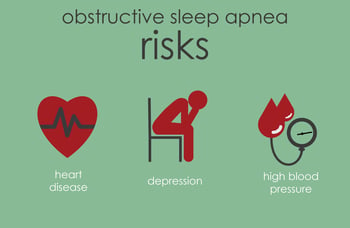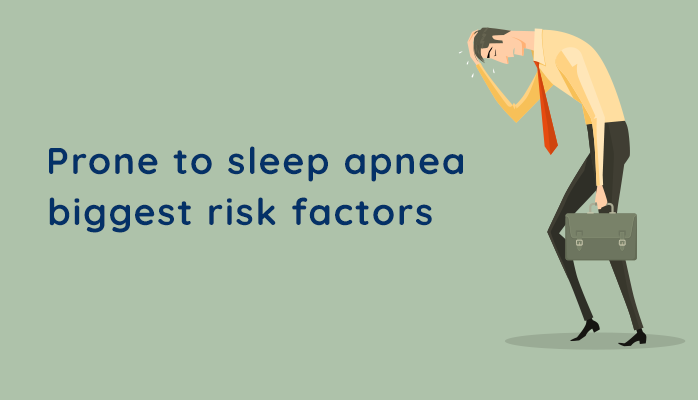What is Sleep Apnea?
Sleep apnea is a medical disorder where you repeatedly stop breathing throughout the night, anywhere from 40-100+ times per night. When you stop breathing you temporarily wake up to start breathing again. You are unaware of these arousals in the morning, so you will feel unrested, but be unsure why.
There are three types of sleep apnea:
- Obstructive sleep apnea (OSA) - a physical obstruction blocks your attempts to breath (back of throat collapses, blocking airway)
- Central sleep apnea (CSA) – your brain doesn’t send proper signals to muscles that control breathing
- Complex sleep apnea – you have markers of both CSA and OSA
Over time, sleep deprivation caused by sleep apnea lead can to:
- Shortened life
- Lower quality life
- Other medical complications
Symptoms of Sleep Apnea
 Telltale symptoms of sleep apnea are [WebMD]:
Telltale symptoms of sleep apnea are [WebMD]:
- Bed partner hears you repeatedly stop breathing throughout night
- Loud, chronic snoring
- Wake up exhausted in the morning
- Wake up with headaches
- Excessive daytime sleepiness
- Waking up choking/gasping
- Mood disruptions, such as constant irritability, brain fog, etc.
- Waking up with dry mouth all the time
- Low stress management
- Struggles with depression or anxiety
- Reduced sex drive
Oftentimes, it’s the bed partner who notices many of these symptoms.
People Who Are At Risk For Sleep Apnea
Physical risk factors for sleep apnea:
- Being overweight or obese
- Having a thick or large neck
- Having smaller airways in your throat, nose or mouth.
- Having enlarged tonsils
- Having a deviated septum
- Having a large tongue
Medical risk factors for sleep apnea:
- Having diabetes
- Genetics/family history
- Having certain medical conditions that cause sleep apnea (rare)
- Requiring certain medications for health reasons (such as pain relievers)
- Age/Sex (older men are most common demographic for sleep apnea)
- Having high blood pressure
- Chronic nasal congestion
Lifestyle risk factors for sleep apnea:
- Sleeping on your back
- Smoking
- Drinking excess alcohol
- Narcotic use
Treatment for Sleep Apnea
The vast majority of people who suffer from sleep apnea treat it with CPAP therapy, which provides constant positive airway pressure (CPAP). Surgery is usually not needed.
For mild cases of sleep apnea, non-medical interventions may be recommended by your doctor.
If you live in Alaska and need to confirm a sleep apnea diagnosis, please contact us to get a sleep study by clicking the orange button below to speak with a sleep health professional.


